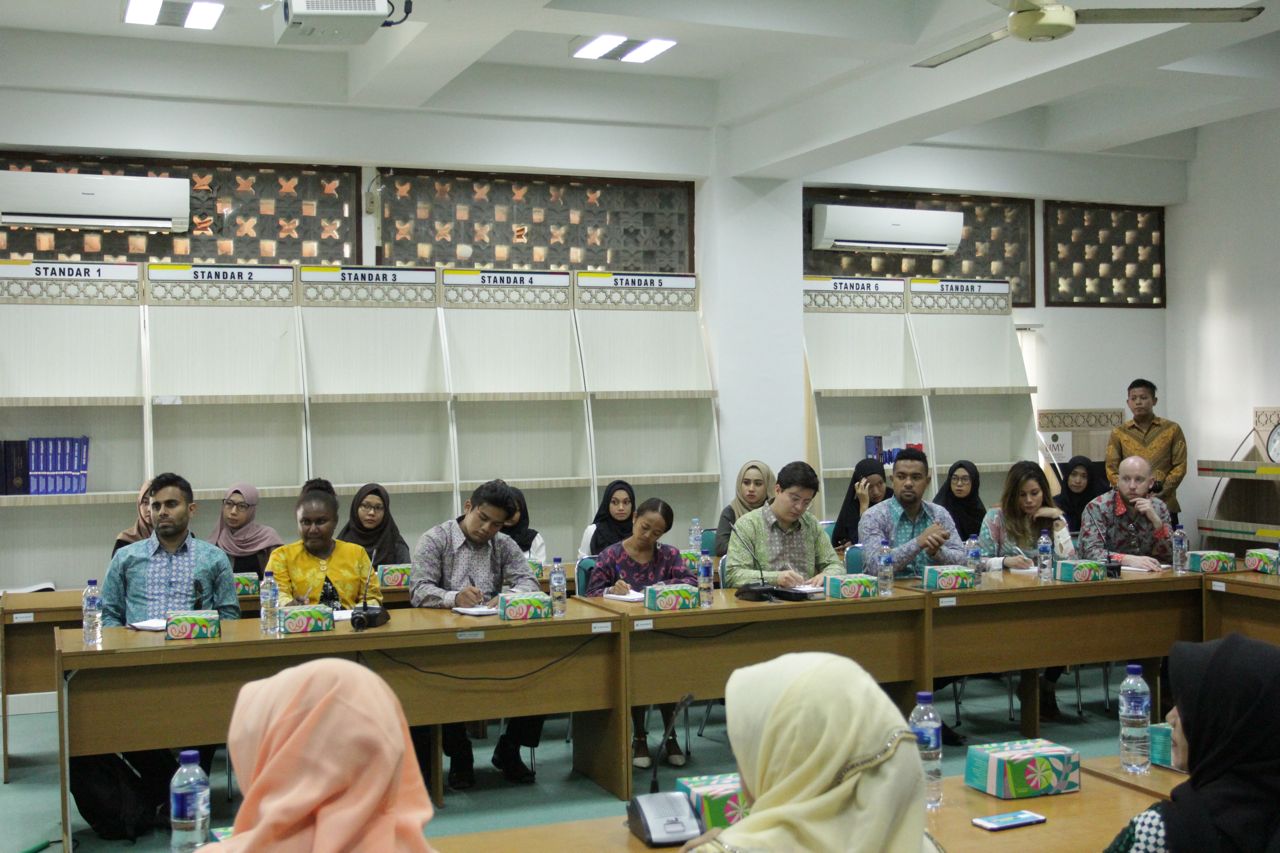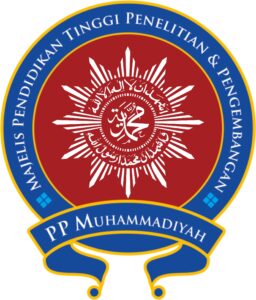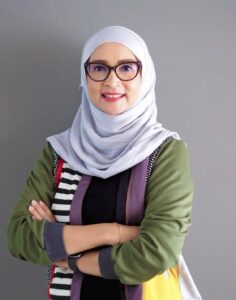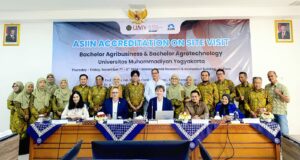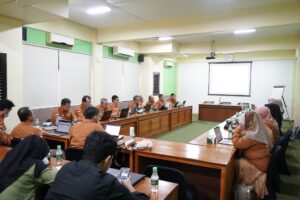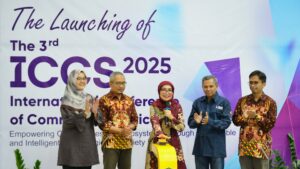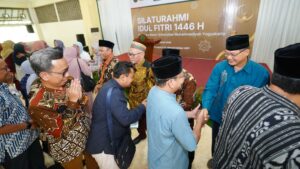The Directorate of Public Diplomacy and Directorate General for Information and Public Diplomacy of Indonesia’s Ministry of Foreign Affairs hosted the Friends of Indonesia 2019: Fellowship for Future Ambassadors at Universitas Muhammadiyah Yogyakarta (UMY) on Friday (21/6). 12 foreign diplomats from allied countries participated in the discussion on Islam Wassatiyah (the ideal and balanced way of Islam) that took part in the International Relations’ council simulation room, located in the first floor of Building E4, UMY.
Three speakers attended this discussion session on Islam Wassatiyah, namely the Presidential Special Staff for International Religious Affairs Dr. Hj. Siti Ruhaini; Director of ICRS Hj. Siti Syamsiatun, Ph.D; and a lecturer of International Relations of UMY Dr. Sidik Jatmika. The moderator for this event was Dian Azmawati, MA. In addition to the twelve foreign diplomats, students of Department of International Relations of UMY were also present and participated in discussions with the speakers.
Dr. Sidik Jatmika explained the values of Islam that has existed since its introduction to Indonesia until today by promoting the value of tolerance. As an example, he mentioned how in the city of Kudus in Central Java, Muslims and Hindus live in harmony. “In Kudus, Muslims are very harmonic with Hindus, proven by the ban to consume beef because it is banned in Hinduism. This ban still applies today, so as an alternative, they consume buffalo meat,” said the UMY International Relations lecturer in the discussion room.
In truth, however, Kudus is not the only place where the value of tolerance needs to be preserved. As the director of Public Diplomacy Azis Nurwahyudi said, there are various religions in Indonesia. Even though Muslims are the majority of its people, the value of tolerance is still high, and the other four approved religions of Hinduism, Buddhism, Christianity, and Catholicism can still perform their teachings. “We can see, not only in Kudus, many Mosques and Churches located side by side, which shows the harmony between Islam and other religions,” he added.
Meanwhile, the Director of ICRS Hj. Siti Syamsiatun, Ph.D. explained that Islam in Indonesia has a lot of organizations, with Muhammadiyah and Nadhlatul Ulama as the two organizations with the most followers. “Wassatiyah in Muhammadiyah is created as a forward-thinking move for Islam, where Muhammadiyah grants a space for women to promote fairness, cooperation, as well as introducing religiousness and spirituality in personal, social, and ecological aspects,” she revealed.
Hopefully, this event can provide a wider view on Islam, especially for the 12 foreign diplomats, to reduce the negative assumption of Islam, which has been considered the religion of extremism, radicalism, and terrorism. Indeed, the speakers provided examples of the harmony, peace, and tolerance of Islam in Indonesia towards other religions.
